Projects
– Discover the impact we’re making!
Join Our Major Climate Change Initiative!
Companies and Corporates
Do you work for, or run, a company which shares our values or vision of creating opportunities and social justice for all? We’re looking for companies to make meaningful partnerships with. Not only will you be supporting us but you’ll be demonstrating to your customers, clients and staff that you are actively playing a part in creating a fairer world – where everyone has access to opportunities to build rewarding futures.
Partnerships can take many forms and we’re keen to personalise something that meets your needs and resources.
Contact us on info@greenactioninternational.org to find out more.
Community climate Partners
Are you ready to make a real impact on climate action? If you’re part of a community group, school, college, or university, we want to collaborate with you!
Contact us on info@greenactioninternational.org to find out more.
Empower Change: We believe in empowering indigenous populations to thrive in their homelands, fostering a regenerative and sustainable growth economy, and repairing generations of environmental damage.
Inspire and Engage: Our founders and advisory board members have delivered inspiring talks and participated in various events. We’re excited to brainstorm new ideas with you and find innovative ways to create a culture of knowledge sharing and understanding.
- Develop a lesson resource pack exploring the realities of climate impacts and unsustainable growth on nomadic pastoralists in Kenya.
- Deliver engaging presentations to school students.
- Host university students for impactful placements.
- Connect UK research/sector experts with their Kenyan counterparts to share valuable tips and skills.
- Organise visits for partners and lecturers to witness our work in Kenya firsthand.
Let’s discuss how we can work together to drive meaningful change! Contact us today and be part of the solution!
Contact us today on info@greenactioninternational.org and be part of the solution!
Accreditation for Carbon Credits
At Green Action, we break the mould of traditional carbon offsetting organisations. Our projects recognise that communities in East Africa are a key part of various ecosystems. Their activities significantly impact the landscape and are affected by climate change due to industrial activity worldwide. Human beings are 'keystone species' in this regard.
At Green Action, we focus on raising rural incomes so these communities can thrive and develop sustainably within their ecosystems. Biochar-based carbon credits enable these communities to earn income directly related to their environmental improvements and engagement in climate action. We aim to build long-term, large-scale environmental remediation, ensuring communities drive and invest in sustainable change.
Our carbon credits and certificates will allow communities to tackle climate change and nature restoration projects with a fresh perspective. Our decisions—from project selection to monitoring and implementation—focus on enhancing natural and human ecosystem health while optimising carbon sequestration rates. By fostering wild and resilient forest ecosystems, managing invasive Mathenge, diversifying plant species, and improving rangeland, rainwater management and agricultural productivity, we can create stable carbon sinks that sequester carbon for a thousand years and more.
If your goal is to have a meaningful impact through diverse projects that restore wild ecosystems, support wildlife and biodiversity, and sequester carbon with or without certifications or credits, we are the right fit for you. For more information, reach out to us at info@greenactioninternational.org.
Additionally, we engage in community co-production activities and capacity building, baseline data capture, third-party audits, and certification for biochar. Join us in our £10,000 pilot stage carbon credit accreditation project, launching on 1st March 2025. Together, we can make a lasting impact.
Demonstrator Sites for Environmental Protection
At Green Action, we will revolutionise how we manage Mathenge trees and produce biochar through our exciting new demonstrator sites, each spanning approximately 1 square kilometre. Imagine vibrant high-density tree planting (inspired by Miyawaki mini forests), lush food forests, innovative rainwater management techniques, regenerative agriculture, and cutting-edge biochar production—all in one place! Our mission is to empower communities, create sustainable livelihoods, and protect our precious environment.
Each tonne of biochar requires 3 tonnes of biomass (such as Mathenge, crop residue, old huts/fences, tree clippings, or goat dung) to produce it. Creating readily available biomass supplies in a climate-damaged environment requires new thinking and technical assistance. These demonstrator sites are key to expanding our impactful work across northeast Kenya, showcasing biochar production and carbon farming's incredible benefits. With accreditation, farmers could produce up to 100 tonnes of biochar annually, and large-scale producers up to 1,500 tonnes annually! A significant new income source.
We will work with existing charcoal producers to help them shift to biochar production, transforming their techniques, increasing capacity, and acquiring essential forestry management skills. By enhancing practices like coppicing and tree planting, these producers will build sustainable businesses while supporting rangeland remediation within a 10km range.
Our project also focuses on agriculturalists, including farmers and women. Farmers can turn crop residue into biochar to use as fertilizer, boosting yields and agricultural productivity. Women and girls will benefit from biochar stoves, which reduce pollution during cooking and improve health. The biochar produced can be certified as carbon credits and used for soil improvements in gardens and smallholdings.
We follow a results-based approach, focusing on scientifically sound ideas, detailed baselines, and long-term outcome monitoring. Starting with trials, we ensure that only successful projects scale up, generating valuable data that we share across our local experienced delivery partnerships. As our demonstrator sites grow, so will the visibility and impact of our work. Join us in making a tangible difference in ecosystem restoration and community empowerment. Together, we will foster resilient ecosystems and sustainable development.
We will establish a Carbon Management Committee and issue £20,000 of pilot stage carbon credits to jumpstart this initiative with our first demonstrator site up and running by June 2025.
For more information, please contact us at info@greenactioninternational.org.
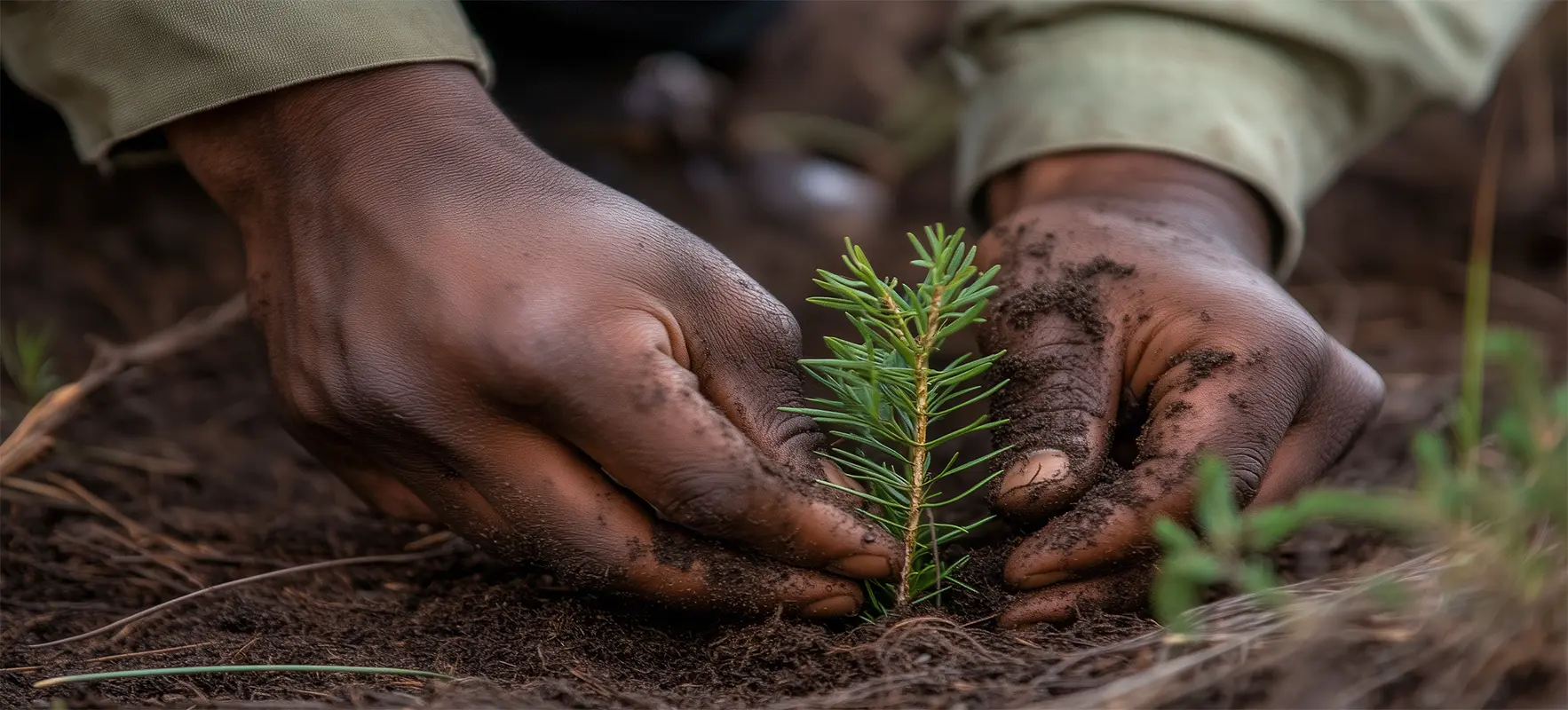
Building a tree nursery
Project Description: Community-Led Tree Nurseries for Climate Resilience
At Green Action, we’re about increasing rural incomes and reversing climate change through carbon sequestration. This requires ecosystem improvements across various environments, each with its challenges. The key to much of our work will be planting thousands of trees. These will provide shade, fodder, food, and medicines, reduce flooding, and help rehydrate the land.
However, planting the wrong trees, such as Mathenge trees, could lead to widespread environmental damage. Equally, planting without proper timing, technical aspects, and tending techniques will lead to low survival rates. Healthy seedlings will need to be planted correctly to thrive. At the scale we plan to work, this will require investment in trees produced by tree nurseries for climate resilience and income diversification.
- Site Selection: Each requires a location with good soil, adequate water supply, and easy access for transportation. The site should be gently sloping for proper drainage and avoid flood-prone areas.
- Site Preparation: Sites need to be clear of vegetation and debris, with soil levelled and raised nursery beds built for better drainage.
- Infrastructure Setup: Shade structures need to be constructed to protect seedlings from harsh sunlight and irrigation systems installed for consistent watering.
- Seed Sourcing and Preparation: Seeds need to be collected or purchased from reliable sources and treated to enhance germination rates.
- Sowing and Growing: Seeds need to be sown in prepared beds or containers, regularly watered, weeded, and monitored for pests and diseases.
Each tree nursery therefore has to establish as a commercial enterprise to be able to cover the costs of material and operational costs. Nurseries will be mainly set up in villages where water is easily available, with owners and managers recruited from among local farmers and charcoal producers. We will regularly consult with farmers to ensure the mix of trees offered by the nurseries considers local ecosystems and needs. This community-led approach will aim to ensure that we are effective in our efforts to support smallholder farmers and charcoal producers to plant trees, while directly benefiting communities by providing opportunities for entrepreneurship.
Encouraging smallholders to plant trees on their land will not be easy, as trees are often seen as competitors to farming. However, our demonstrator sites and associated awareness raising programs, delivered through our local network of partners and tree nursery managers, will provide training to farmers on the benefits of agroforestry and charcoal producers in relation to forestry management.
How Farmer-Run Tree Nurseries Will Work
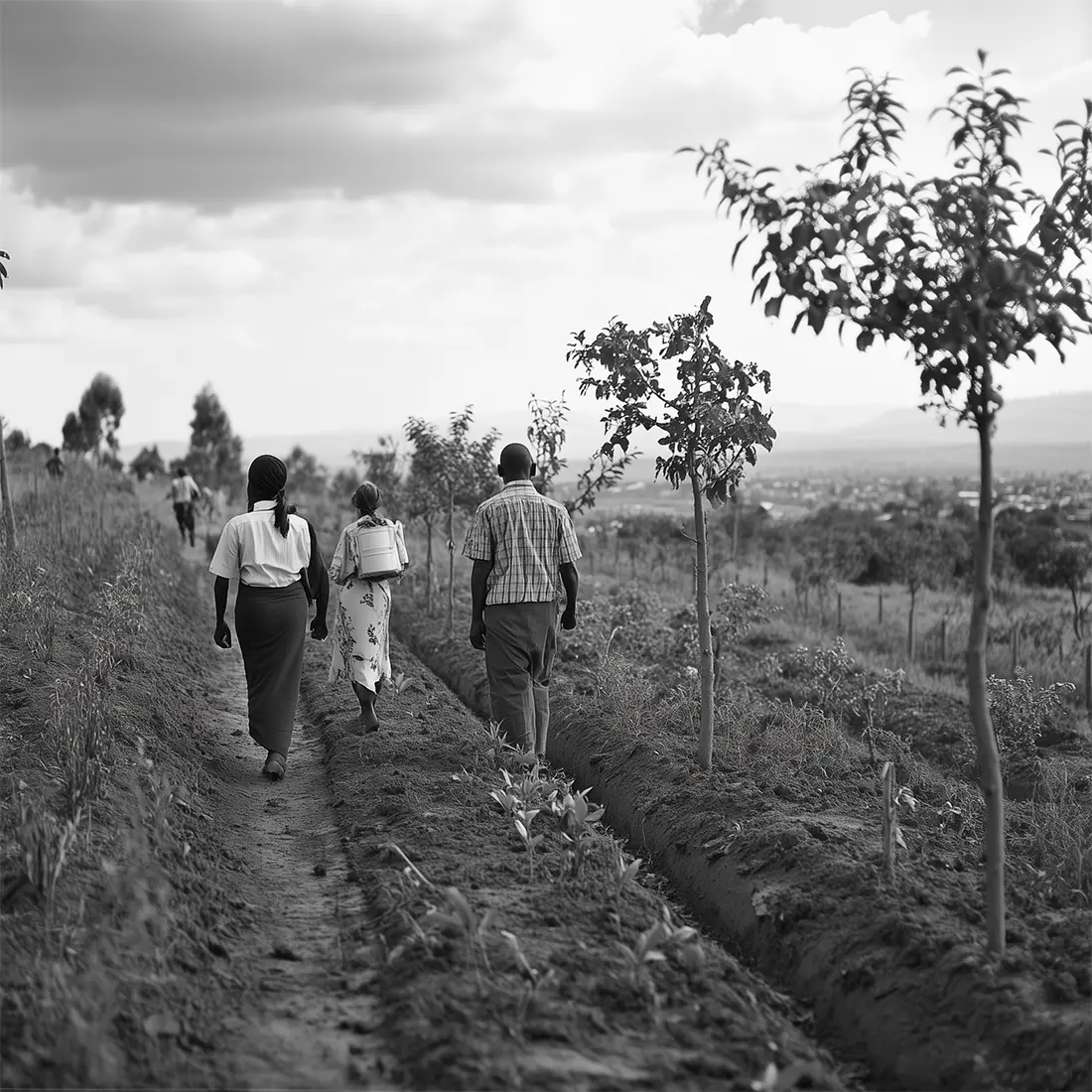
Cost Considerations


Project Description: Enhancing Rural Incomes and Climate Resilience in North East Kenya
At Green Action, we aim to transform rural incomes in North East Kenya by enhancing traditional livelihoods and enabling income diversification through carbon credits. This innovative funding mechanism will serve as both seed funding and a continuous source of income for the community, driving sustainable development and climate resilience.
Community Livelihood Diversification
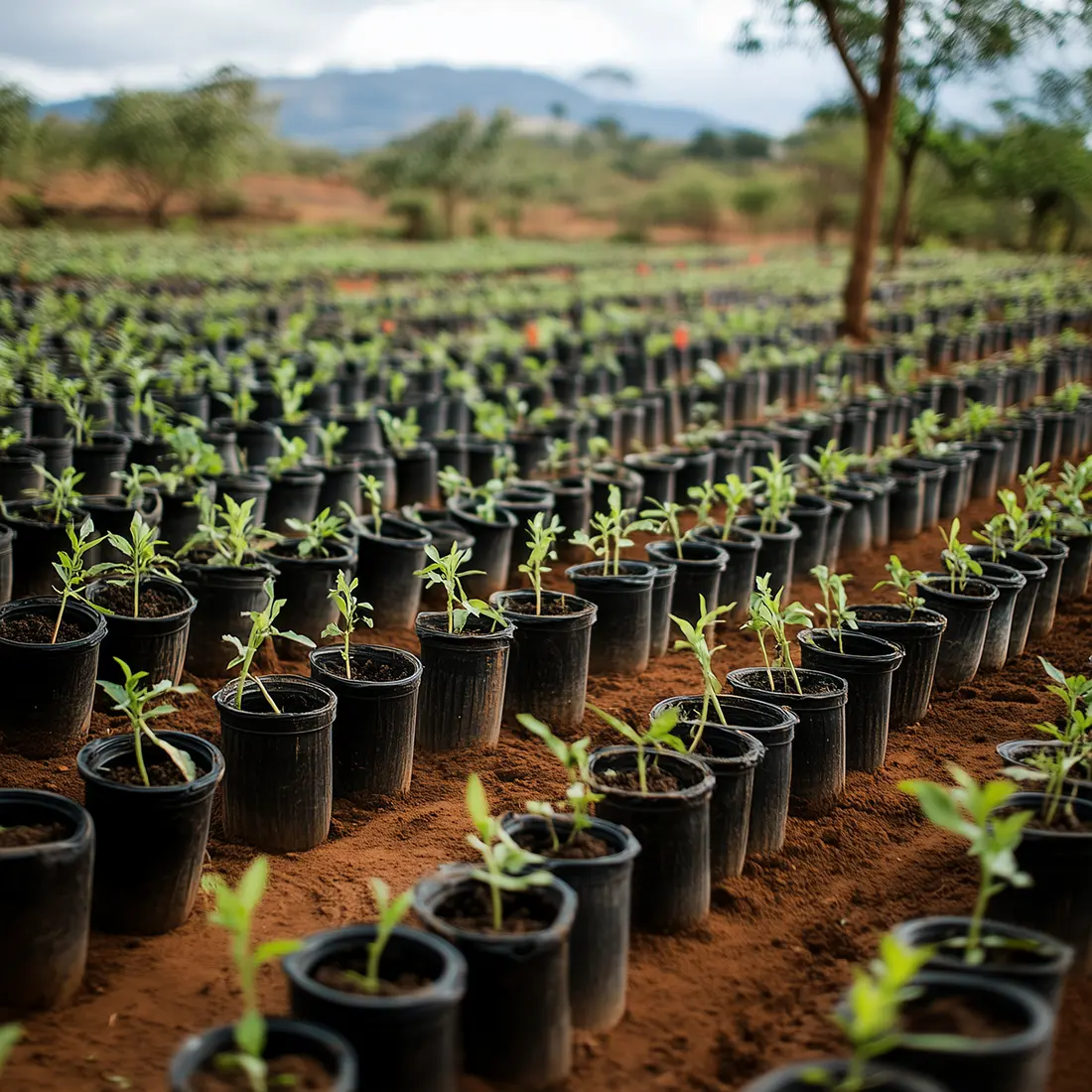
Empowering Local Expertise
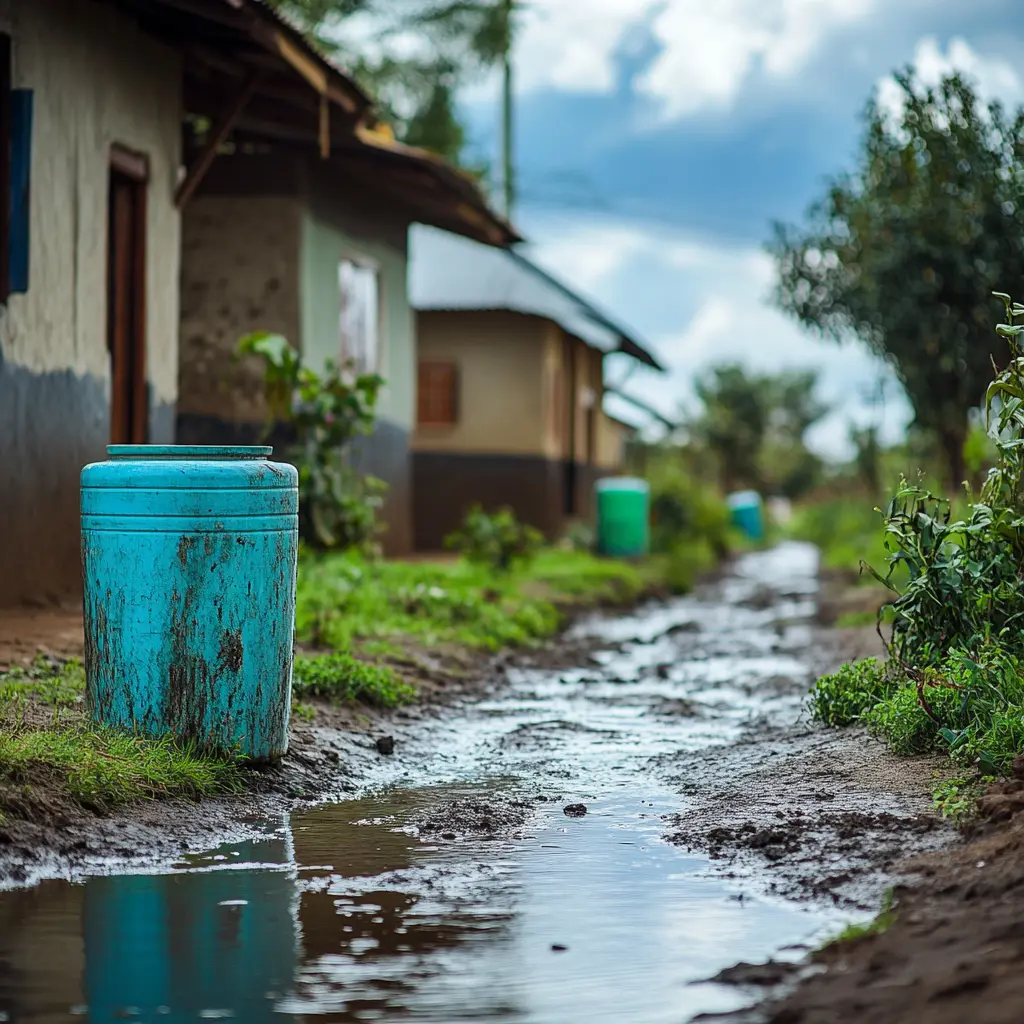
Scaling Biochar Production
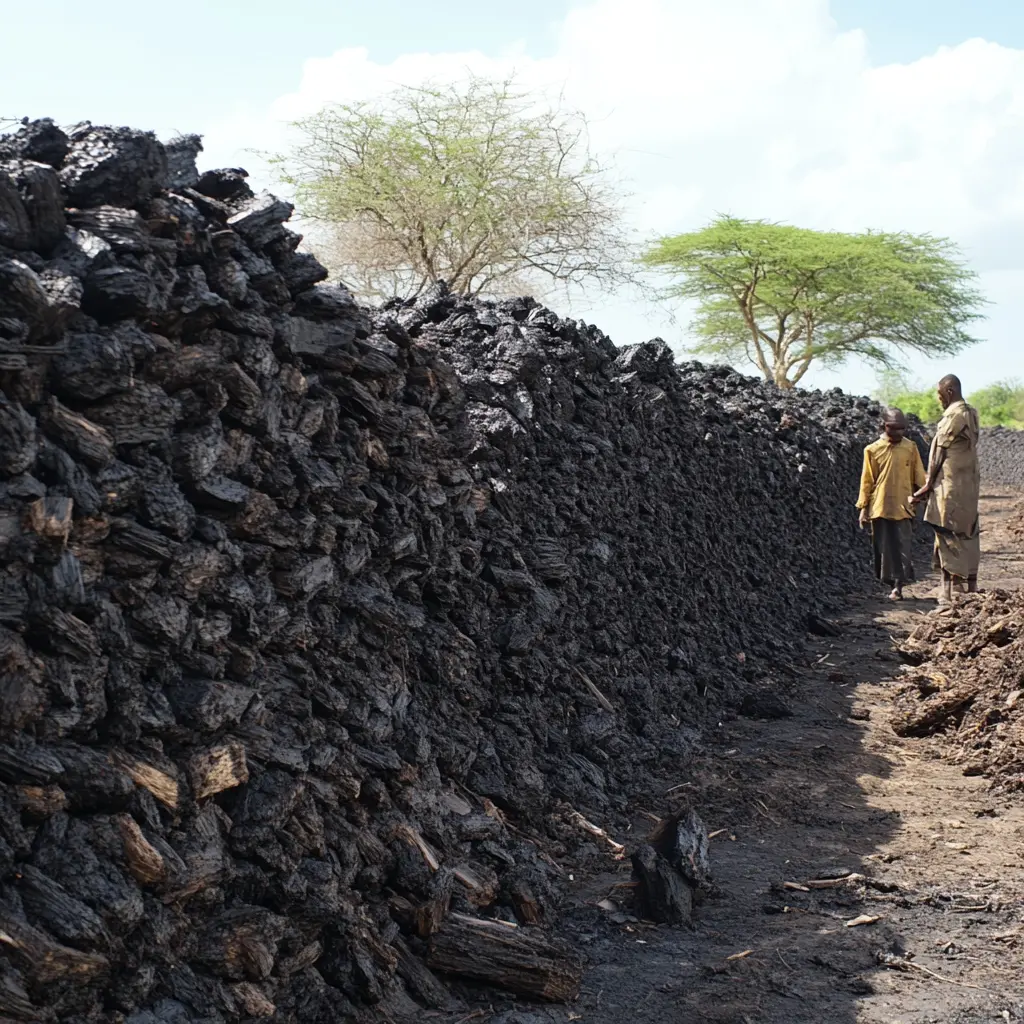
Carbon Credits as a Catalyst for Growth
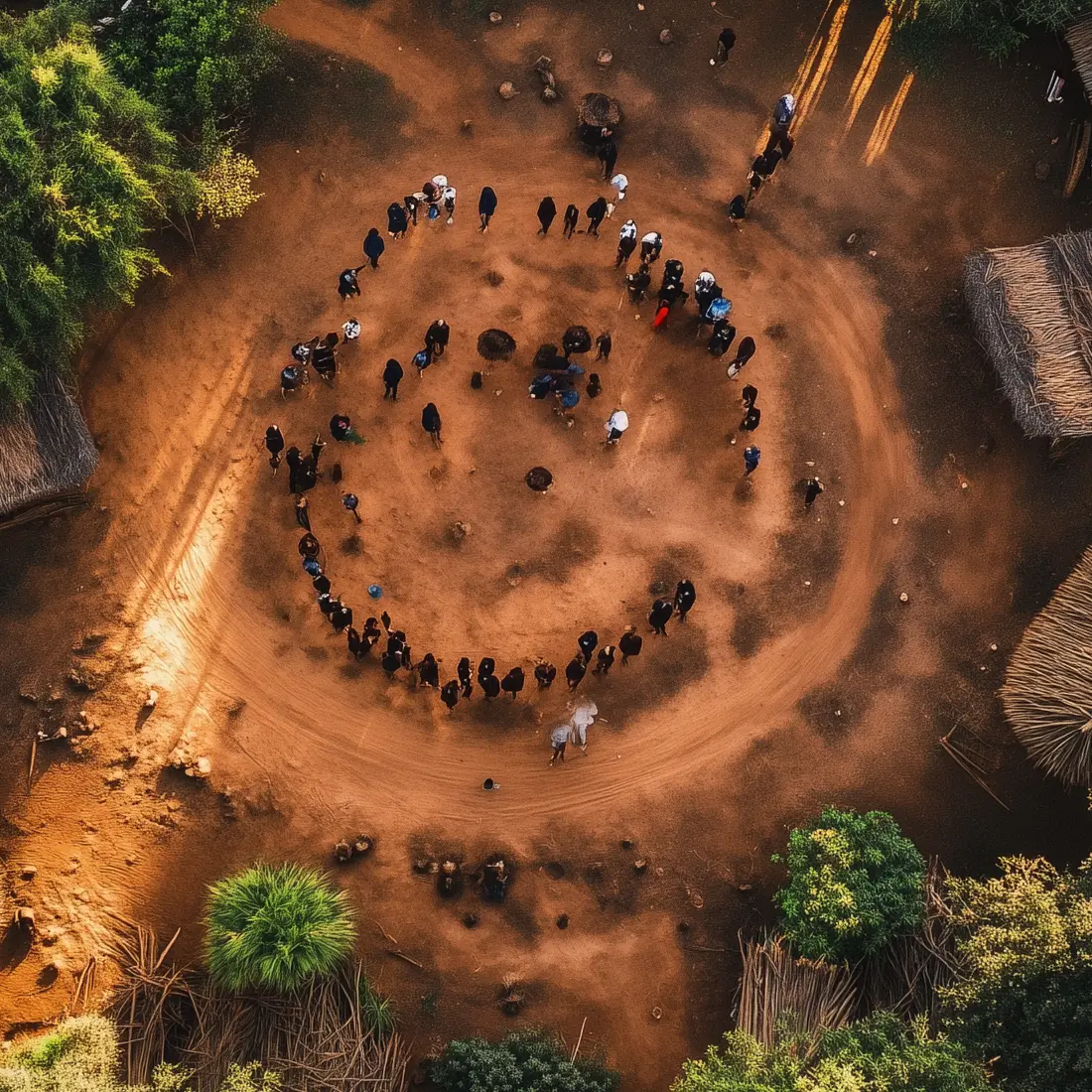
Supporting Agricultural Productivity and Health
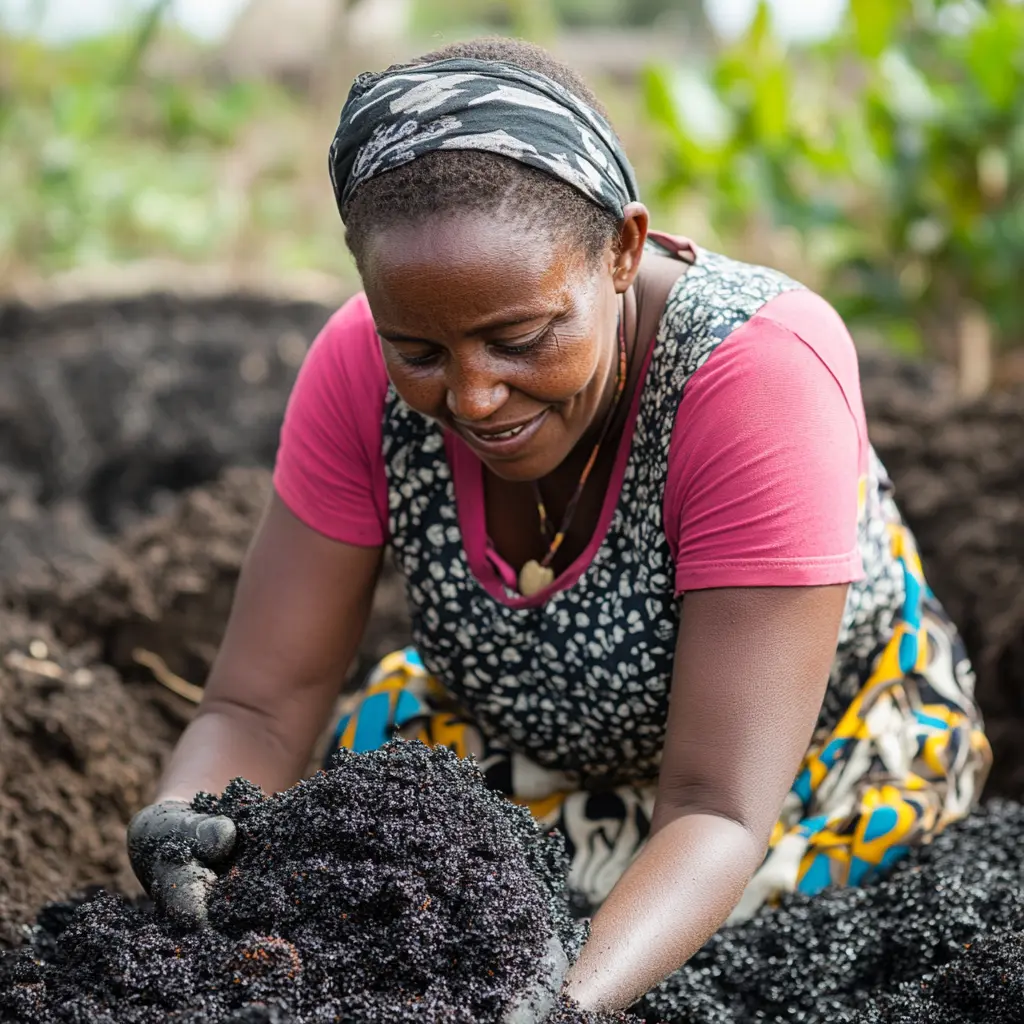
A Credible and Ambitious Vision
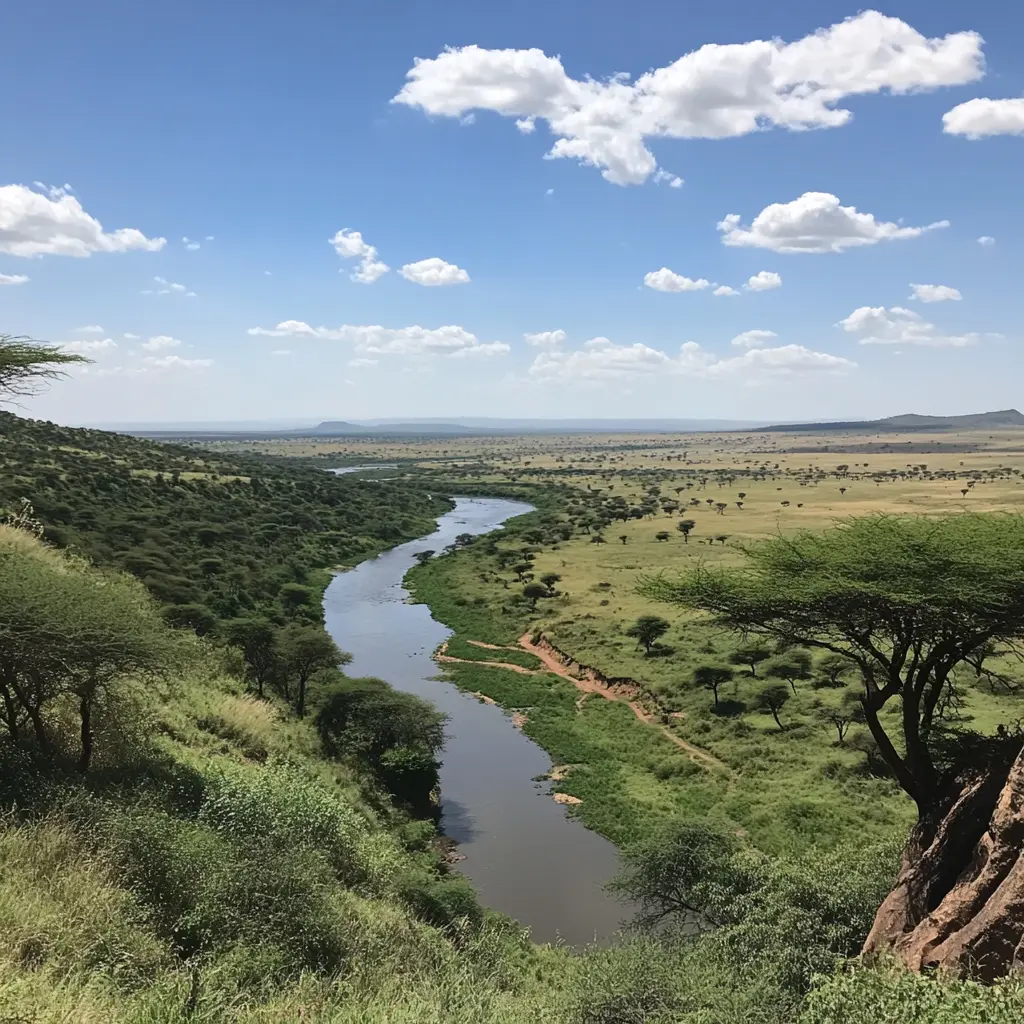
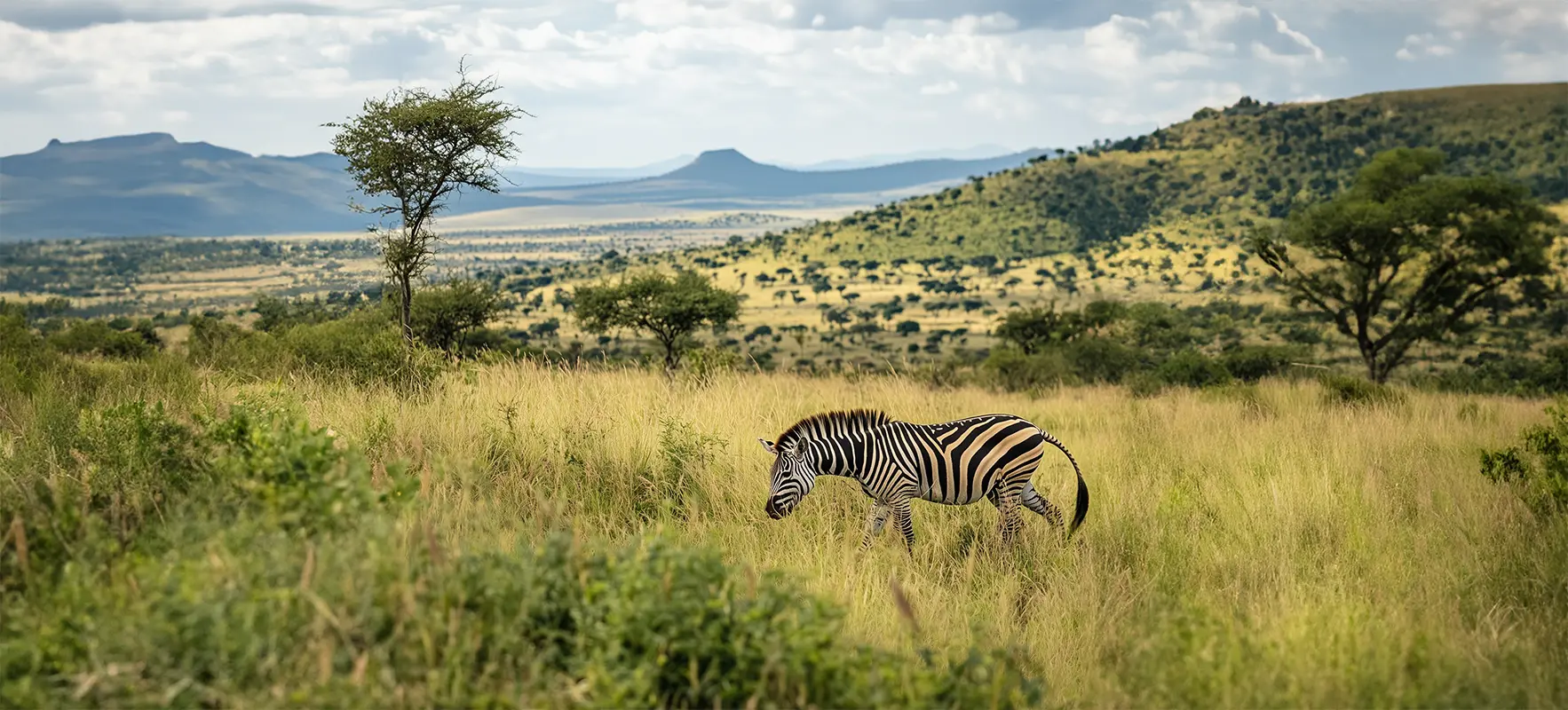
Scaling community-led Climate Action
Scaling Community Climate Actions: Bringing Back Wilderness and Biodiversity!
At Green Action, we're not just planting trees but transforming entire ecosystems! Our mission spans from the depths of the sea to the highest mountain peaks, ensuring resilience and long-lasting impact.
Our projects are about more than just trees and carbon. We focus on restoring natural processes, supporting keystone species, and rejuvenating neglected ecosystems. All whilst ensuring those who can both benefit from and contribute to such improvements can live sustainably and prosper
Without this commitment to raising rural incomes, communities affected by climate change cannot take ownership of the necessary transitions. Without guaranteed water supplies, women and children are required to travel significant distances to secure water. Without productive range lands, livestock farmers must travel further and further to secure pasture and water for their grazing animals. With drought increasingly impacting, farmers and their families face a precarious existence.
Rehydrating Kenya’s Soil
Global temperature rises are causing longer droughts and unpredictable rains, leaving Kenya's soil dry and barren. Pastoral nomads and other communities, dependent on healthy land, must adapt. Our partner, Gird, has been working to revive degraded land for many years using simple yet effective methods. Digg pits, bunds, and sand dams capture and retain rainwater, boosting microbial life and eventually larger fauna with the added benefit of reduced flash flooding. Incorporating biochar into each bundle improves soil fertility and water retention, ensuring plant growth over longer periods. This process, though straightforward, requires scale and funding to restore and rehydrate entire landscapes.
At Green Action, we aim to create 10,000 bunds around each target community, retaining thousands of gallons of water and transforming these landscapes into vibrant life. Carbon credits will help fund this mission, with £65,000 already earmarked for training in rainwater management and materials, such as grass seeds, to bring life back to the land.
Our local partners will work with communities through project planning, partnerships, and hands-on fieldwork to transform the environment and the lives of those who depend on it.